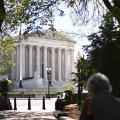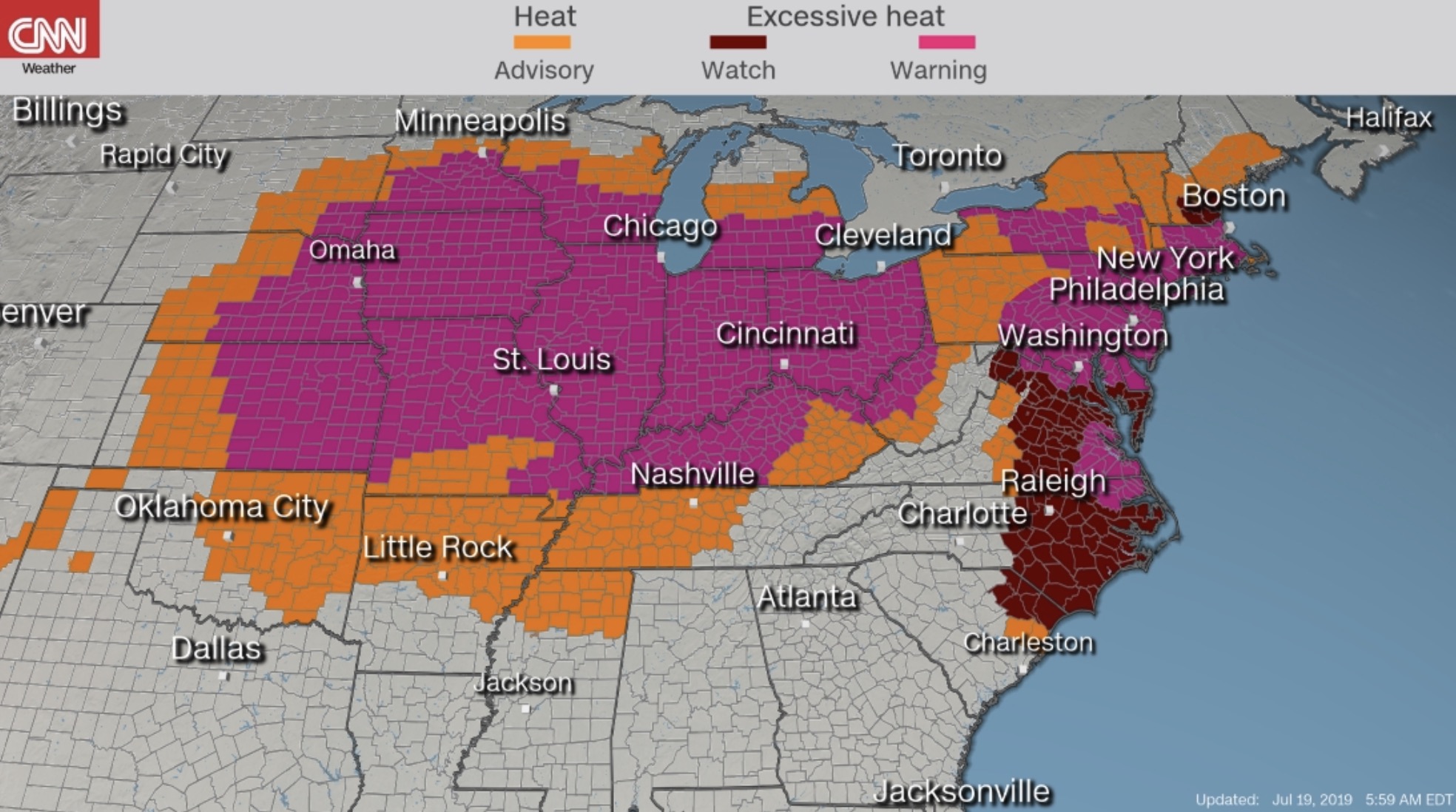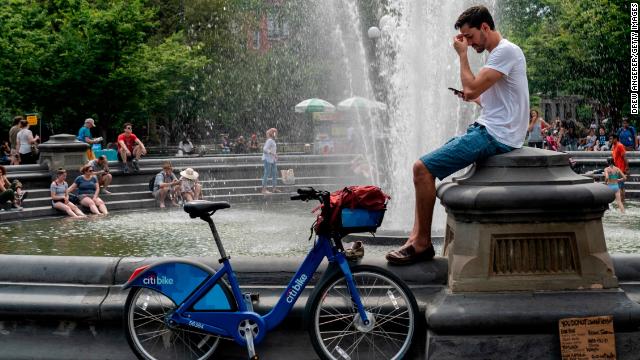Extreme temperatures are the most deadly weather events in the United States, consistently killing more people than hurricanes and tornadoes combined.
As a potentially record-breaking heat wave grips the nation this weekend, doctors are warning people to find air conditioning and stay cool.
While dehydration is a common concern, "the most worrisome consequence" of high heat is heat stroke, said Dr. Scott Dresden, an assistant professor of emergency medicine at Northwestern University. Heat stroke can cause confusion, seizures and even death, he said.
How you can get heat stroke: Heat illness occurs when someone's body temperature rises above 104°F (40°C). Usually, we cool ourselves off by sweating and widening our blood vessels, bringing heat to the surface of our skin and letting it dissipate.
But sweating becomes ineffective as humidity rises above 75%. Our bodies can only let off heat when the outside environment is cooler than our internal body temperature of 98.6°F.
What the symptoms look like: The first symptoms are cramping and dizziness, but as the heat continues, it could cause someone to pass out or collapse. Left untreated, extreme heat stroke can trigger a dangerously fast heart rate and cause bodily enzymes to stop functioning. Ultimately, multi-organ system failure and death can occur.
How to treat it: The easiest way to treat mild symptoms is to drink a lot of fluids and get out of the heat. As symptoms get more serious, Dresden said, "we typically use ice baths in our emergency department." Wet sheets and large fans are also used in the hospital to cool patients, especially if ice baths aren't available.
That can rapidly cool someone's body temperature, but patients are sometimes treated before they even arrive at the hospital. "Our Chicago fire department will often pack a patient's neck, armpits and groin in ice packs" to target major blood vessels," Dresden said.
Here are some more tips for how to stay safe in the heat:
- Stay up-to-date on the latest forecast. Because extreme heat is predictable, it's important to keep up with the conditions.
- Stay in the shade.
- Drink lots of water.
- If you know someone is living alone, especially elderly people, reach out to them and make sure they are in safe conditions.
- Adjust your schedule to avoid physical activity outside during the temperature peaks of the day.





